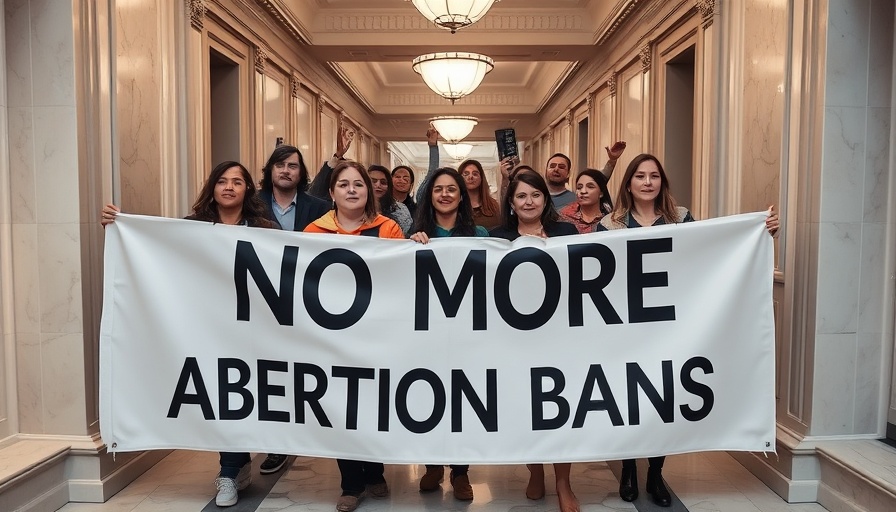
Missouri's New Referendum: Repealing Abortion Rights
In a significant turn of events, Missouri lawmakers have greenlit a referendum that could repeal the recently approved abortion-rights amendment. This comes only six months after voters in Missouri sided with the amendment, reflecting a fierce and ongoing battle over reproductive rights within the state. The proposed repeal, coming from a Republican-majority Legislature, has ignited protests from advocates and concerns from many citizens who view this as an attack on personal freedoms.
Understanding the Referendum Motion
The proposed constitutional amendment will be put to voters in November 2026, although Republican Governor Mike Kehoe could call a special election sooner. The referendum aims to ban most abortions, with limited exceptions for rape and incest. Proponents within the Republican party assert that this offers Missourians a chance to rethink their decisions regarding abortion. Supporters of abortion rights, however, see this as an attempt to roll back advancements made just months before.
Arguments from Both Sides
During the debates, Republicans highlighted the urgency of what they perceive as a national tragedy concerning abortion, with state Senator Mary Elizabeth Coleman stating, "Abortion is the greatest tragedy in the world right now." This perspective reflects a deeply rooted belief among many conservative lawmakers, who feel that introducing exceptions, like for rape and incest, makes the repeal more palatable to voters.
On the flip side, Democrats voiced strong opposition. Senator Brian Williams pointedly remarked, "Our rights are under attack," accusing Republican lawmakers of disregarding the voters’ will. The emotional weight carried by these statements resonated with many citizens, prompting protests right outside the senate chamber where votes were being tallied.
The Legislative Environment and Next Steps
During the same legislative session that approved the abortion referendum, lawmakers enacted another measure: repealing provisions of a previously approved law that guaranteed paid sick leave. Immediate effects of these decisions include potential economic ramifications for small businesses in the area, raising concerns about worker rights amidst the changing political climate.
Protests and Public Reaction: A Divisive Issue
As news of the referendum spread, protests erupted outside Missouri's Senate chambers. Activists chanting “Stop the ban!” embodied the frustration felt by many over these legislative actions. Onlookers and protesters expressed fears that this political momentum could lead to further restrictions on bodily autonomy, not just in Missouri but across the nation.
What This Means for Missouri Voters
The upcoming referendum presents a critical moment for voters in Missouri. With feelings running high on both sides regarding the issue, citizens will be faced with the task of navigating the complexities of this new proposed amendment. Advocating for the rights of women and ensuring access to safe reproductive options will become central themes as election time approaches.
Future Predictions: What Comes Next?
Experts anticipate a heated election cycle as both sides pull support and resources to sway voters. Republican lawmakers are counting on changing public sentiment and believe the inclusion of exceptions may soften the backlash against the repeal. On the other hand, rights advocates are mobilizing to rally support against what is seen as an assault on progress made in recent years. This ongoing struggle promises to shape the legislative landscape in Missouri and beyond.
 Add Row
Add Row  Add
Add 




Write A Comment